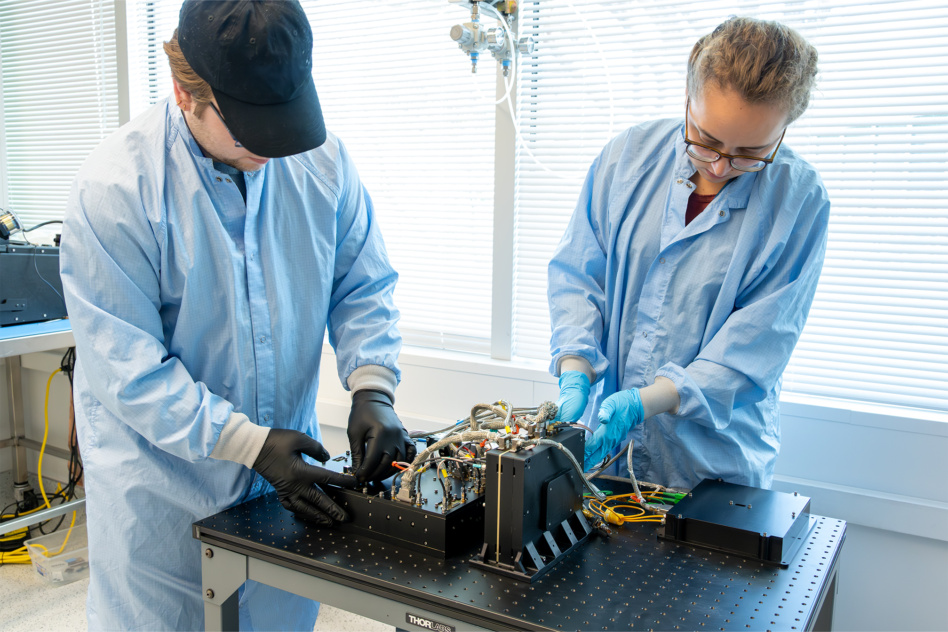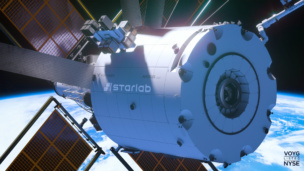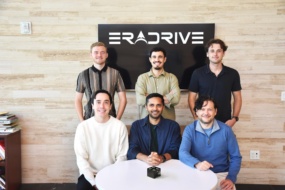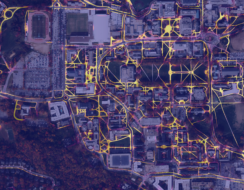HRL Labs has built a space-hardened quantum payload and demonstrated it on the ground—a key milestone in Boeing’s push to demonstrate the first quantum entanglement swap in space.
The device, which is going through final environmental testing, will serve as a “ground twin” for the final payload, which is expected to reach orbit on the Q4S spacecraft next year. Jay Lowell, Boeing’s chief scientist for disruptive computing, called the device “an optical lab’s worth of capability in a compact, 15 kg [33 lbs] integrated space-capable assembly.”
Quantum what? The next leap in computing relies on quantum physics, which allows engineers to manipulate subatomic particles in strange and powerful ways. Scientists believe quantum computers will be far more capable than existing processors, and Boeing has set out to demonstrate “entanglement swapping,” or fixing and exchanging specific information between particles of light.
We dove into the project in some detail last year, but the short explanation is that lasers and precision optics will measure the relationship between four individual photons on a satellite in LEO for the first time. If it succeeds, the results could be the foundation of highly-secure quantum computer networks in space.
Pushing the frontier: A similar quantum experiment, led by the University of Illinois Urbana Champaign, has begun measuring quantum activity aboard the ISS after arriving in November. The project, dubbed Space Entanglement and Annealing Quantum Experiment (SEAQUE), is also trying to develop quantum sensors that can recover from damage caused by space radiation.
Hard to handle: Because analyzing activity at the subatomic scale is so difficult, a big challenge is protecting the experiment from the radiation and thermal environment in space. HRL Laboratories, founded by Howard Hughes and now a joint venture between Boeing and GM, built and tested Boeing’s payload to ensure it can survive the rigors of space.
Up next: The space-bound payload is now being built and will be integrated with a bus from Astro Digital ahead of a targeted 2026 launch.




